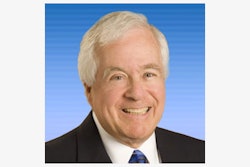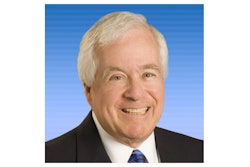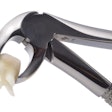On June 23, 2025, DrBicuspid published an article about a dentist who used various trusts and different contacts to fund these trusts. The purpose of “hiding” income and not paying taxes on that income with the IRS and the state taxing authority (in this case, Colorado) was his reasoning for handling these trusts the way that he did.
Since he was sentenced to prison, at first glance, it may appear that the trusts were part of the illegitimate planning that the dentist used to make his plan work.
 Bruce Bryen, CPA, CVA.
Bruce Bryen, CPA, CVA.
When organizing trusts to protect assets and avoid income tax on the income generated from those trusts, it is important to have advisory counsel in the form of trust attorneys as well as a dental certified public accountant (CPA) who understands the power of these vehicles.
When a person goes to the appropriate adviser and follows the advice of that representative, it is almost always a happy situation for the advisee with good results and tax savings, as well as protection of that person’s assets from creditors.
When attempting to "hide income" and not pay taxes on that income, it is almost always a material problem. The problem sometimes results in personal fines, penalties, and, in the case of this dentist, a prison sentence.
It is possible that he had advisers for the formation of these trusts who explained how the trusts operated. If the advisers explained how to commit fraud, they would have very likely received a severe sentence as well. It is probable that they explained the proper way of doing things so that the dentist could have approached this issue differently and saved himself from a prison sentence.
Guarding the assets of a trust and the trust’s income
Dental CPAs understand trusts and their formation and function very well. They understand their purpose and can usually direct the dentist to an attorney who specializes in estates, trusts, and the avoidance of federal and state income taxes.
The specialization and preparation of trust documents are not cheap. They will comply with the law, and the counsel from these individuals can assist a dentist in understanding how to do things the right way and avoid trouble.
A properly created and administered trust can save thousands of dollars in federal and state income taxes. There is no need to commit fraud for the purpose of "hiding" income and not paying the tax on that income.
There are legitimate ways to create trusts so that income can be sheltered in plain sight. The tax on that income can be deferred so far into the future that it is paid on the reporting of the income that is distributed at that time. These funds would never have been available if not for the creation of the trusts and deposits into the trust or trusts made available by the dentist and his or her advisers.
An example of how this can be accomplished
For the dental CPA, this challenge may not be as difficult as it may initially sound. In fact, the CPA should always review his or her client’s work and their dental practice progress. The practice will have certain income and opportunities for the CPA to offer advice, especially about federal and state income tax projections.
When reviewing a client’s profit and loss statement, the CPA will offer advice about how to defer taxes. It may be in the form of short-term and long-term advice.
Much of the CPA's advisory services may consist of how to implement and operate trusts. This may be especially true of employer-qualified deferred compensation plans.
This type of retirement plan trust serves many purposes while assisting in the deferral of substantial amounts of income and the current tax on that income.
An example of an employer-qualified deferred compensation plan
The following is an approach for a dentist and a CPA in starting a trust. First, the CPA and the dentist discuss the increase in the income tax that the dentist is paying. The CPA can then offer the idea of an employer-qualified deferred compensation plan.
A summary of the way the plan works is as follows:
- Based on the dentist’s age, earnings, and goals, the CPA explains how a defined benefit plan and a defined contribution plan work. Each plan differs from the other, but the basic goal is that the dental practice reports a certain amount of income.
- Based on which type of plan is implemented, that income is not “hidden.” It is reported first to the CPA and then to an actuary or a business that is charged with the responsibility of determining the amount of the retirement plan trust contribution for the year.
- That money is deposited into the trust and becomes a tax deduction for the dental practice. Hypothetically, if there is $2 million (or any amount in the trust account), the lender cannot touch it. The dentist has the liability because of his or her personal guarantee, but the trust has no liability.
Be wary of tax-shelter schemes
As described above, the perpetrator of the fraud in the June 23, 2025, article presented by DrBicuspid made a severe mistake that he didn’t have to make. He could have worked with his dental CPA, who perhaps could have assisted him with a legitimate approach to income and tax deferral and asset accumulation.
Bruce Bryen is a certified public accountant with over 45 years of experience. He specializes in providing litigation support services to dentists, with valuation and expert witness testimony in matrimonial and partnership dispute cases. Bryen assists dentists with financial decisions about their practice, practice sales, evaluating whether to join a dental service organization, practice evaluation during divorce proceedings, and questions about the future or financial health of dental practices. He can be reached at [email protected].
The comments and observations expressed herein do not necessarily reflect the opinions of DrBicuspid.com, nor should they be construed as an endorsement or admonishment of any particular idea, vendor, or organization.



















